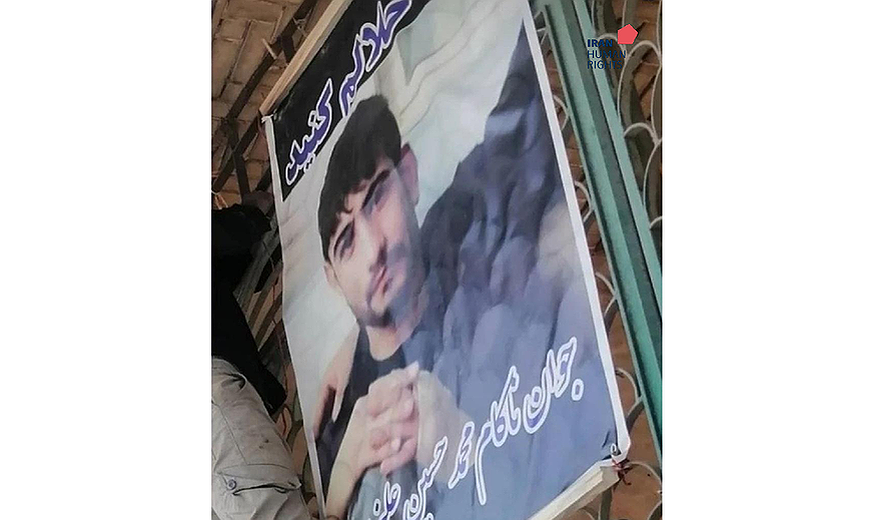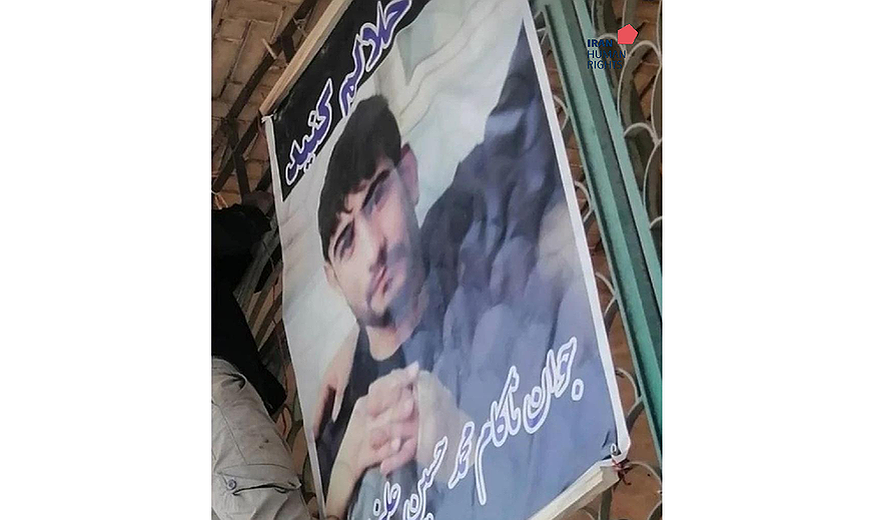Executed Afghan National Mohammad Hossein Alizadeh Confirmed as Juvenile Offender; Tortured to Force Confessions

Iran Human Rights (IHRNGO); September 1, 2022: Document evidence confirm that Mohammad Hossein Alizadeh, an Afghan national executed in Qom Central Prison on August 10, was 16 years old at the time of the alleged offence.
According to documents published by Hal Vash, Mohammad Hossein Alizadeh who was executed on August 10, was 16 years old at the time of arrest. 24-year-old Mohammad Hossein was an Afghan national. Informed sources had previously told Iran Human Rights that Mohammad Hossein was arrested for a murder committed during a street fight after his cousin was attacked.
He was born on 6 October 2000 according to the court documents and the alleged murder took place on 30 June 2017. In court, Mohammad Hossein said: “I don’t accept the murder. The knife belongs to me but I don’t remember if I used it on anyone or not. I wasn’t in a normal state, I had been drinking.”
In a letter to Qom’s head of judiciary, he wrote: “All my confessions were extracted through torture, force, beatings and insults at the police station.”
The judgement issued by the Supreme Court states: “After issuing the order to resolve the flaws and complete the investigations, the first branch of the Criminal Court 1 sought the opinion of the Forensic Medical Commission on the defendant’s mental development and maturity. In light of the defendant’s complaint, a five-member board of neuropsychiatry and forensic medicine experts ruled that the named individual suffers from behavioural disorder, aggression and irritability but that he has the ability to differentiate between good and bad, benefit and harm, and is mentally developed and mature according to his age, and there was no evidence that he did not recognise the difference between right and wrong at the time of committing the crime.”
At the time of writing, his execution has not been reported by domestic media or officials in Iran.
Iran is one of the few countries in the world that still carries out the death penalty for juvenile offenders. The International Covenant on Civil and Political Rights which the Islamic Republic is a signatory to, prohibits the issuance and implementation of the death penalty for crimes committed by an individual below 18 years of age.
The Convention on the Rights of the Child, which the Islamic Republic is also a signatory to, explicitly states that “Neither capital punishment nor life imprisonment without possibility of release shall be imposed for offences committed by persons below eighteen years of age.” However, the new Islamic Penal Code adopted in 2013 explicitly defines the “age of criminal responsibility” for children as the age of maturity under Sharia law, meaning that girls over 9 lunar years of age and boys over 15 lunar years of age are eligible for execution if convicted of “crimes against God” (such as apostasy) or “retribution crimes” (such as murder).
According to data collected by IHR and international human rights organisations, the Islamic Republic is responsible for more than 70% of all executions of juvenile offenders in the last 30 years. IHR’s statistics also show that at least 63 juvenile offenders have been executed in Iran over the past 10 years, with at least six being executed in 2018, four in 2019 and two in 2020.
According to data gathered by Iran Human Rights, at least 183 people were executed on murder charges in 2021. Those charged with the umbrella term of “intentional murder” are sentenced to qisas (retribution-in-kind) regardless of intent or circumstances due to a lack of grading in law. Once a defendant has been convicted, the victim’s family are required to choose between death as retribution, diya (blood money) or forgiveness.
At least 251 including 6 women and 67 Baluch minorities were executed in the first six months of 2022. This is double the number of executions in the same period in 2021 when 117 people were executed.


